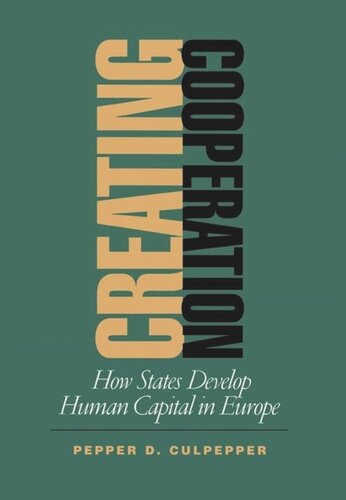

Most ebook files are in PDF format, so you can easily read them using various software such as Foxit Reader or directly on the Google Chrome browser.
Some ebook files are released by publishers in other formats such as .awz, .mobi, .epub, .fb2, etc. You may need to install specific software to read these formats on mobile/PC, such as Calibre.
Please read the tutorial at this link: https://ebookbell.com/faq
We offer FREE conversion to the popular formats you request; however, this may take some time. Therefore, right after payment, please email us, and we will try to provide the service as quickly as possible.
For some exceptional file formats or broken links (if any), please refrain from opening any disputes. Instead, email us first, and we will try to assist within a maximum of 6 hours.
EbookBell Team

4.4
32 reviewsIn Creating Cooperation, Pepper D. Culpepper explains the successes and failures of human capital reforms adopted by the French and German governments in the 1990s. Employers and employees both stand to gain from corporate investment in worker skills, but uncertainty and mutual distrust among companies doom many policy initiatives to failure. Higher skills benefit society as a whole, so national governments want to foster them. However, business firms often will not invest in training that makes their workers more attractive to other employers, even though they would prefer having better-skilled workers.Culpepper sees in European training programs a challenge typical of contemporary problems of public policy: success increasingly depends on the ability of governments to convince private actors to cooperate with each other. In the United States as in Europe, he argues, policy-makers can achieve this goal only by incorporating the insights of private information into public policy. Culpepper demonstrates that the lessons of decentralized cooperation extend to industrial and environmental policies. In the final chapter, he examines regional innovation programs in the United Kingdom and the clean-up of the Chesapeake Bay in the United States—a domestic problem that required the coordination of disparate agencies and stakeholders.